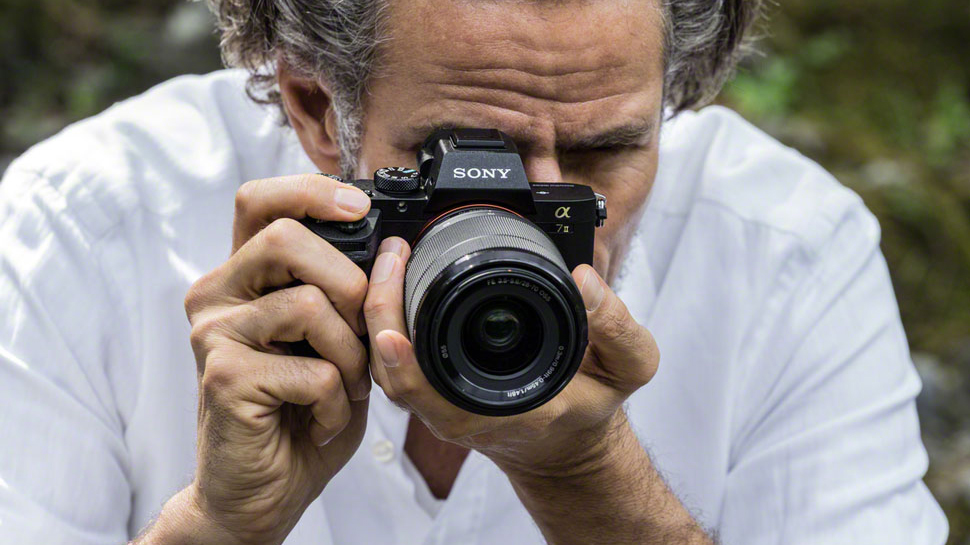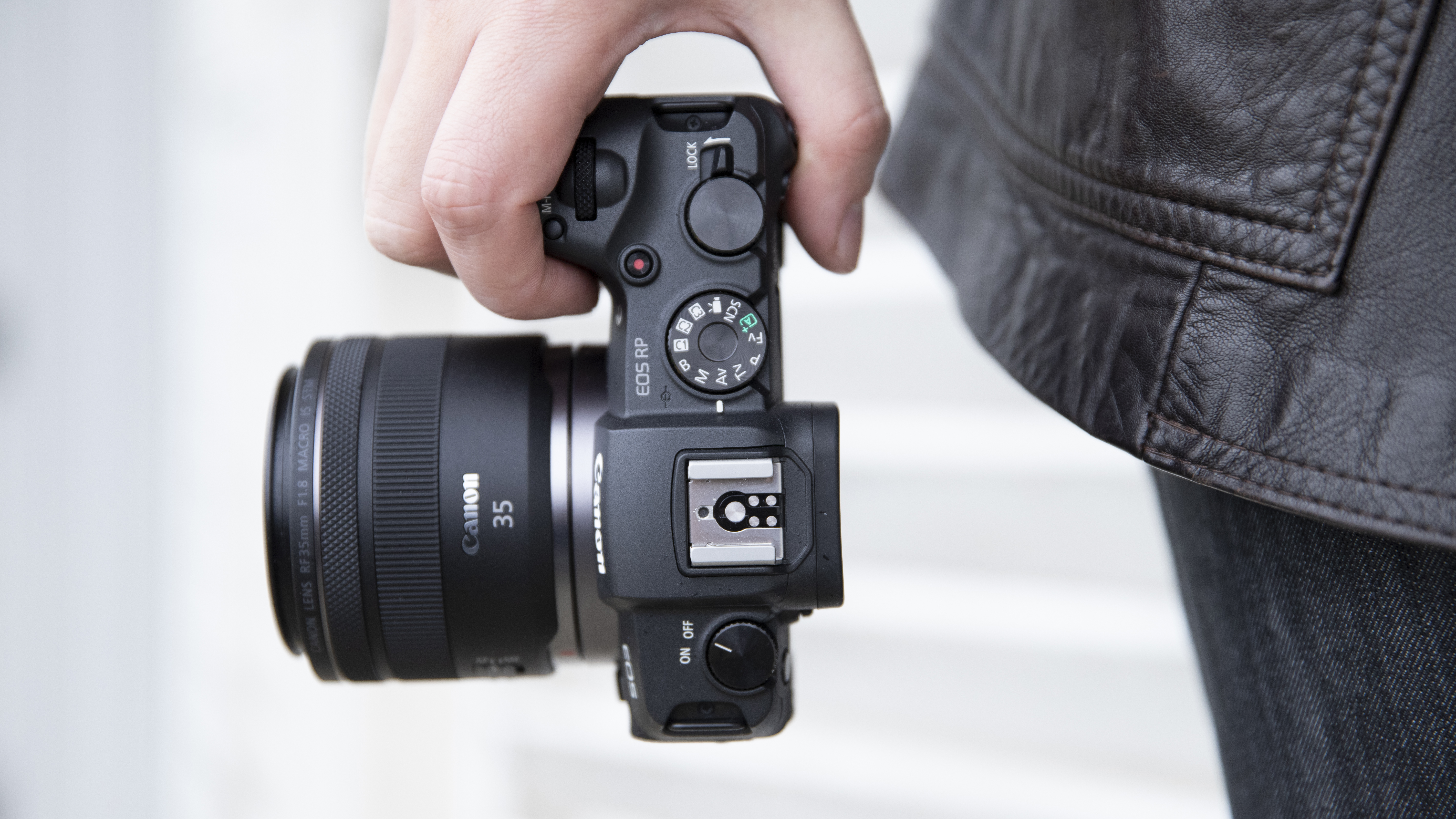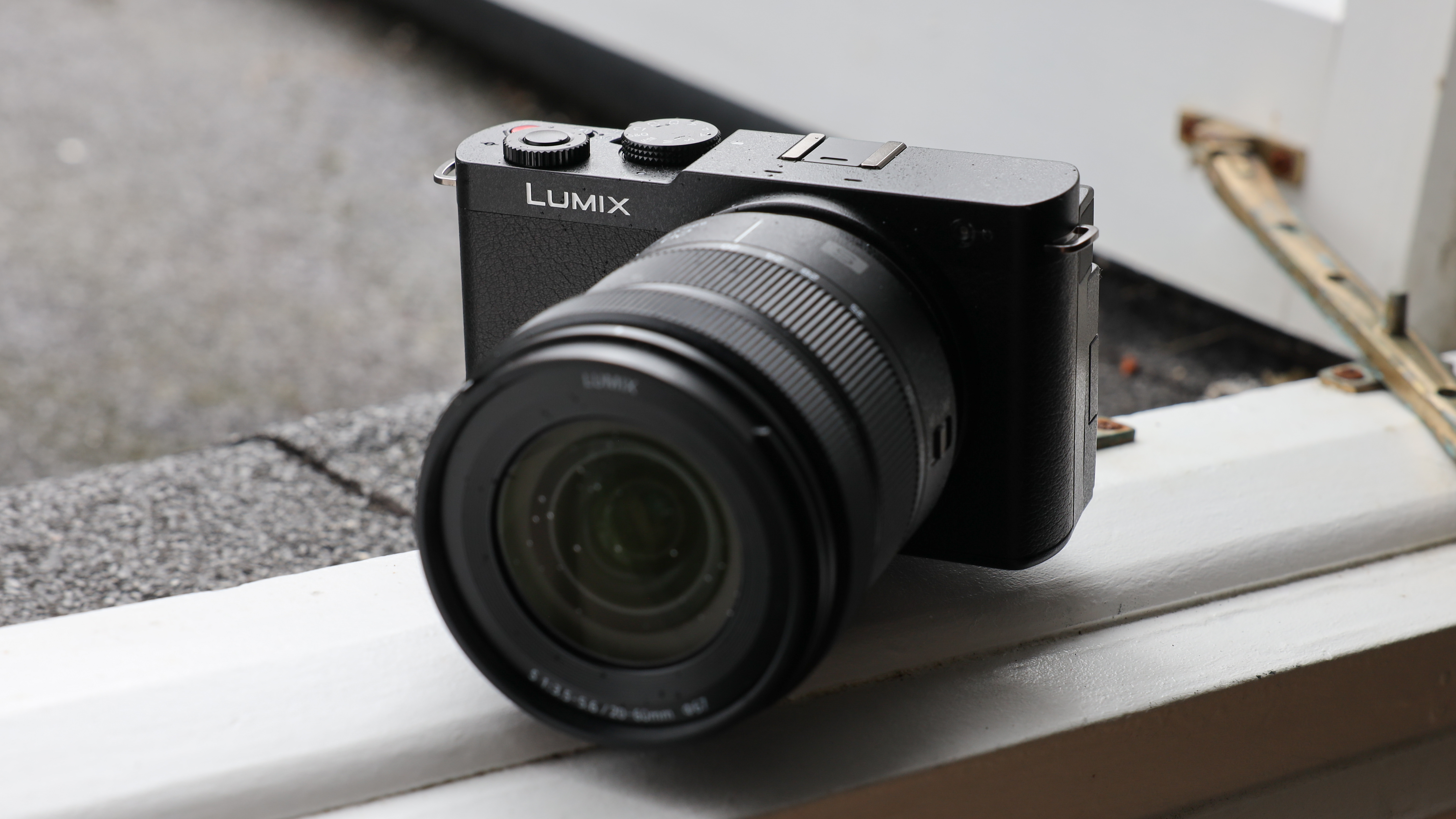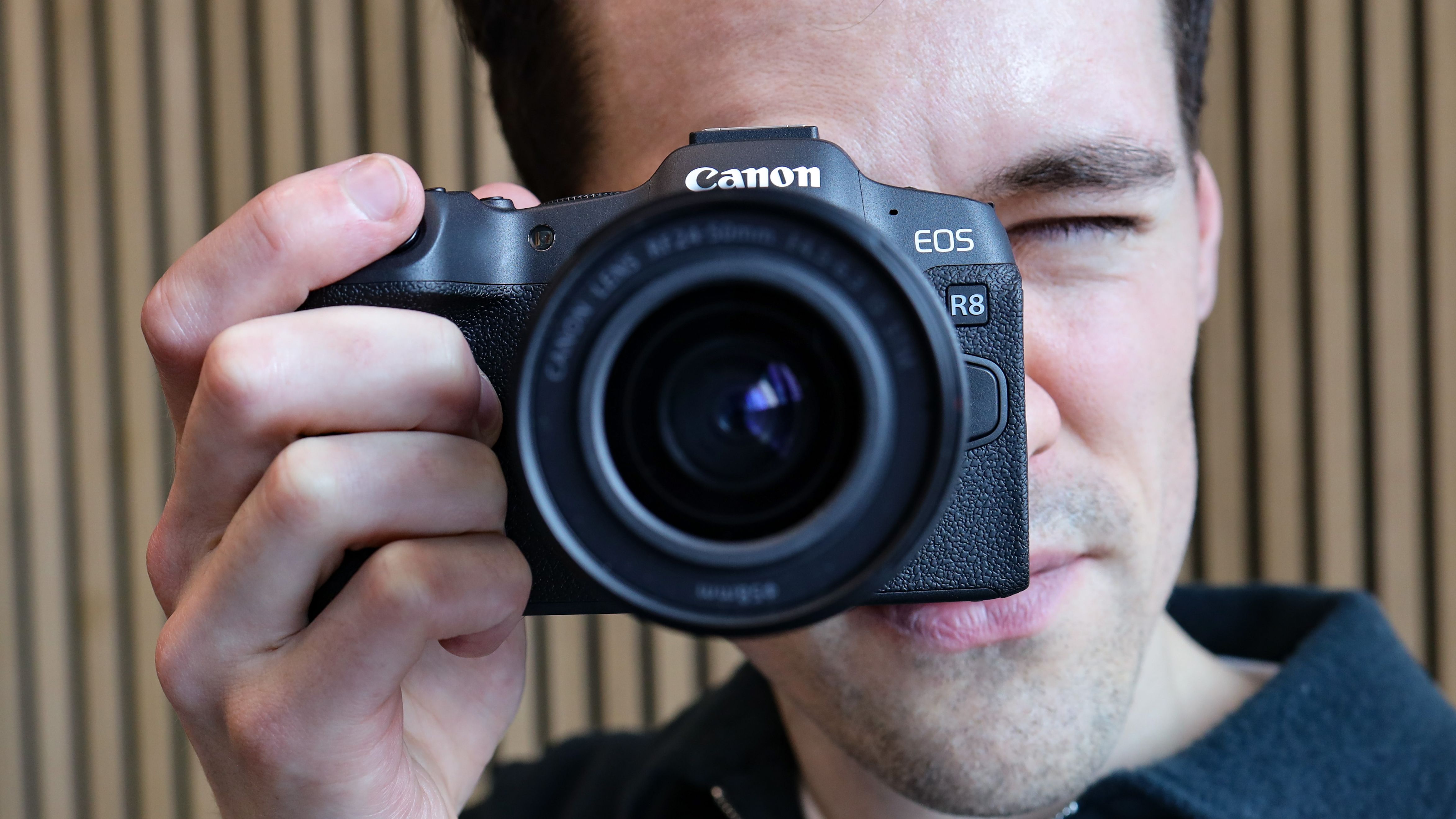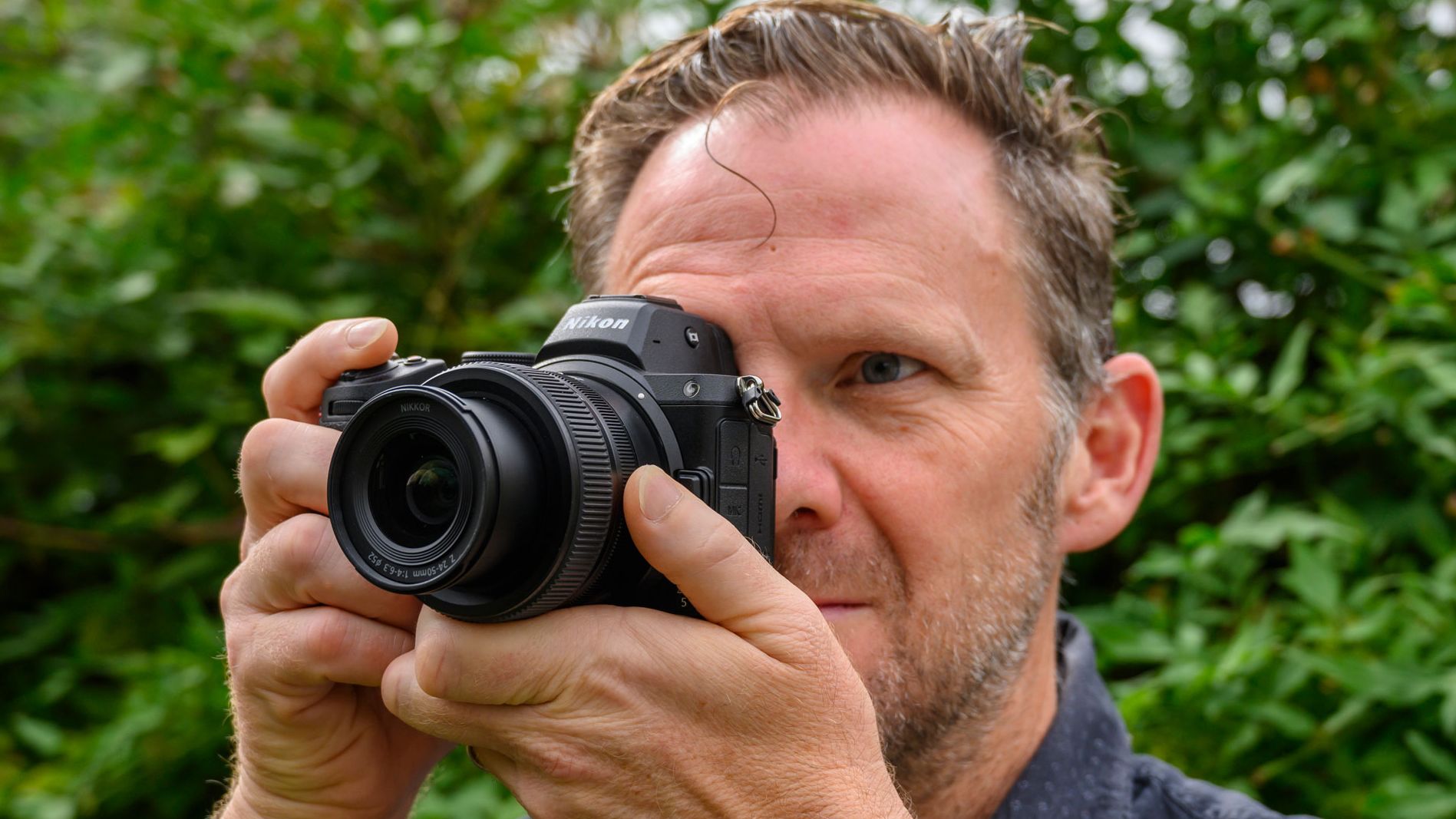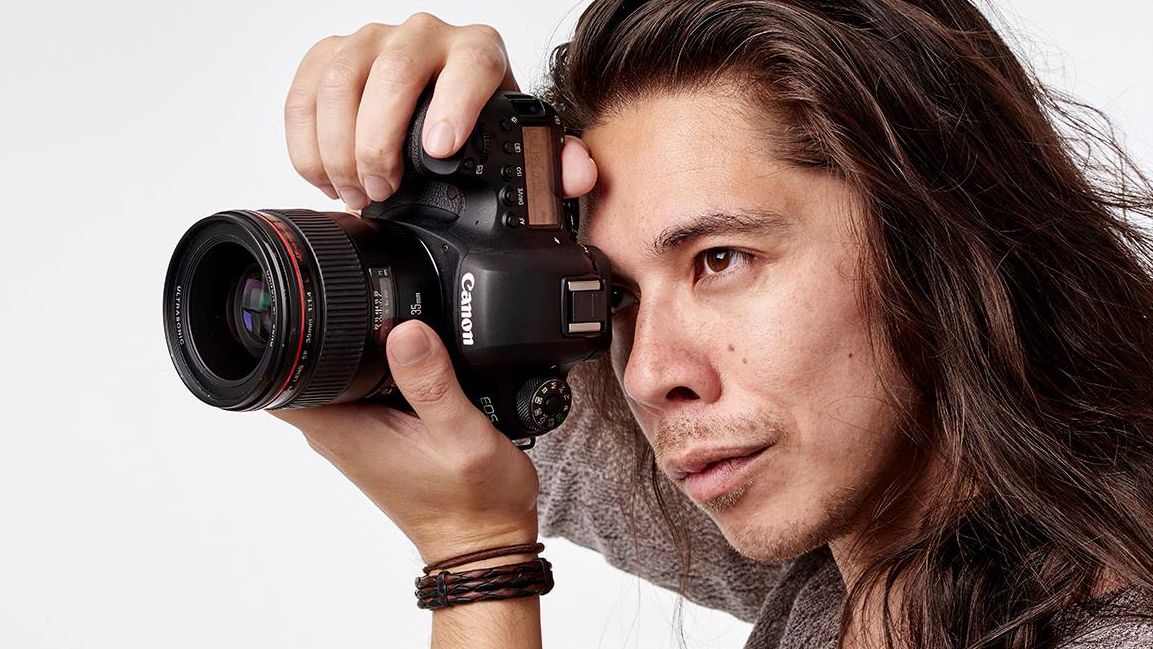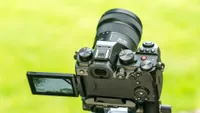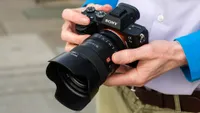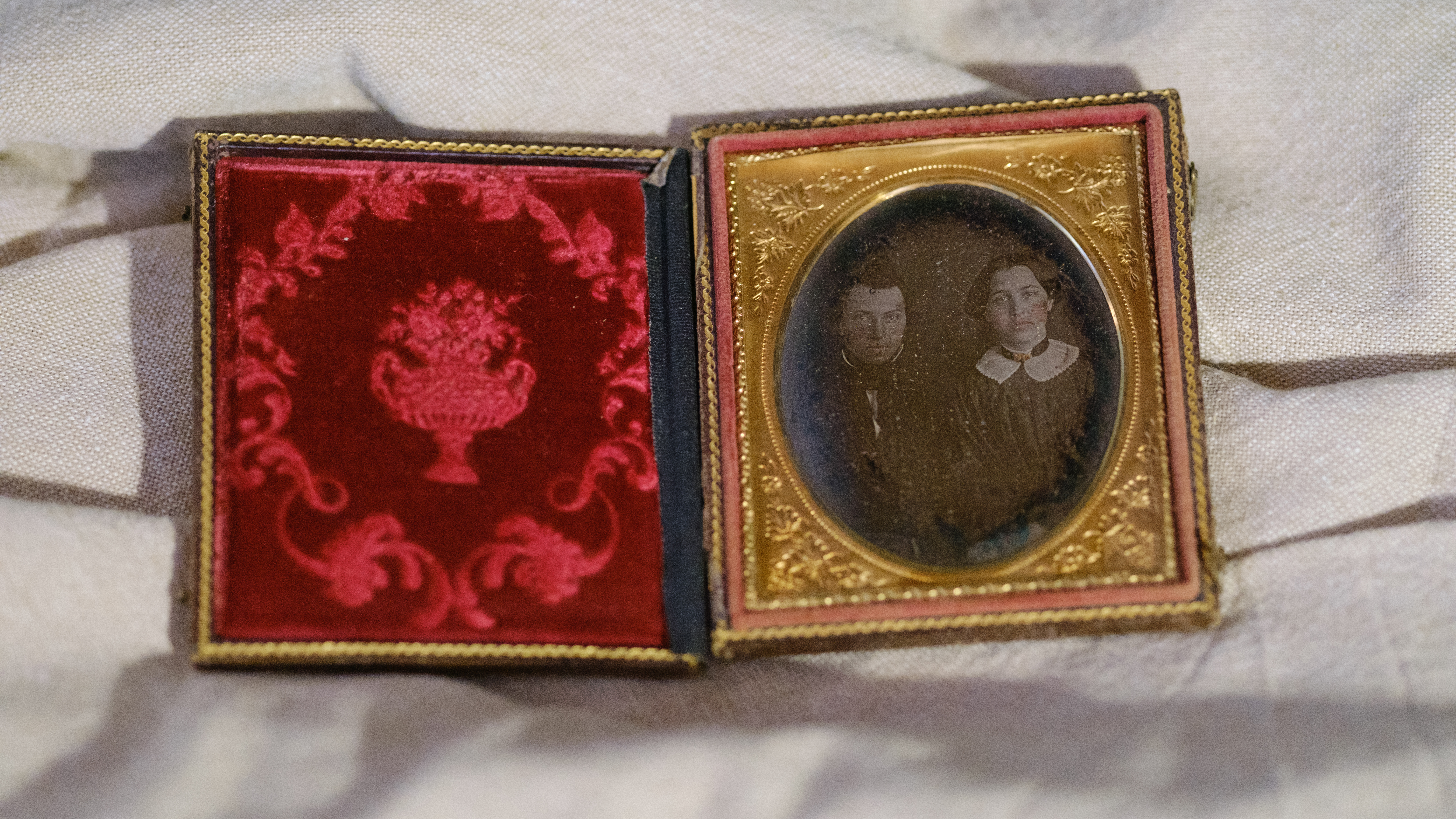These are the cheapest full-frame cameras: get yourself a big sensor on a small budget!
The cheapest full-frame cameras pack great image quality without a huge price tag
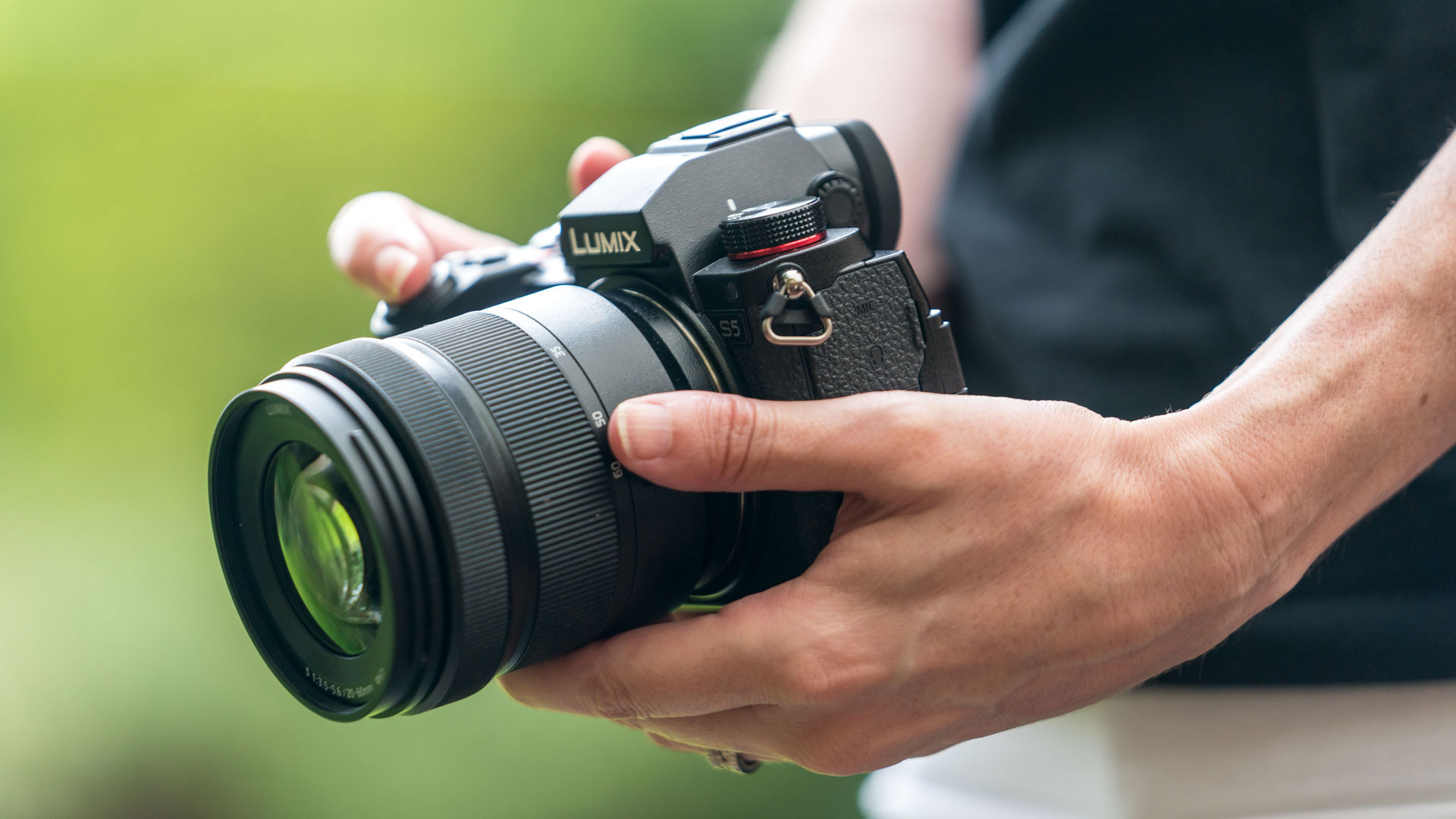
Great cameras don't have to be expensive! The cheapest full-frame cameras offer more than just great value – these are very capable and, in some cases, very advanced cameras that give you all the advantages of a larger image sensor.
Some of my recommendations for the cheapest full-frame cameras are slightly older models that were top-of-the-line when they were released, but whose prices have dropped now that they're a few years old. However, the big brands have also released a couple of new cameras with carefully tuned specs at great-value prices.
Indeed, as more and more photographers and videographers upgrade to 35mm sensors, the cheapest full-frame cameras are offering better bang-for-buck than ever. Whether you're looking for an affordable DSLR, or a slightly older mirrorless body for maximum value, or a modern mirrorless camera with a deep feature set, there's something on my list for you…
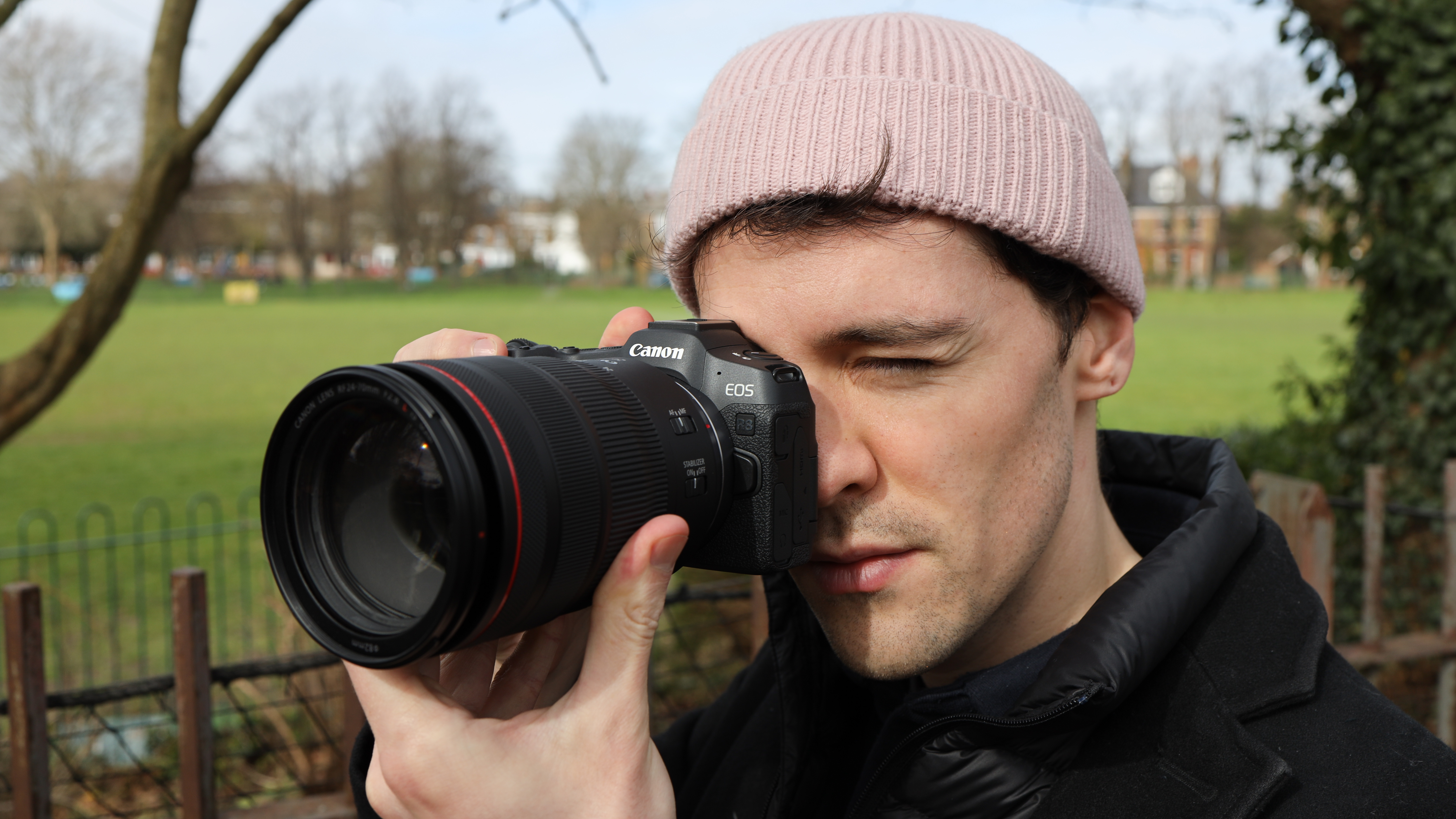
As the Reviews Editor at Digital Camera World, most of the cameras we cover pass across my desk first! I'm a full-frame shooter myself, and have been a professional photographer and videographer for several years, so I can spot good value and I know which cameras are worth recommending.
The Quick List
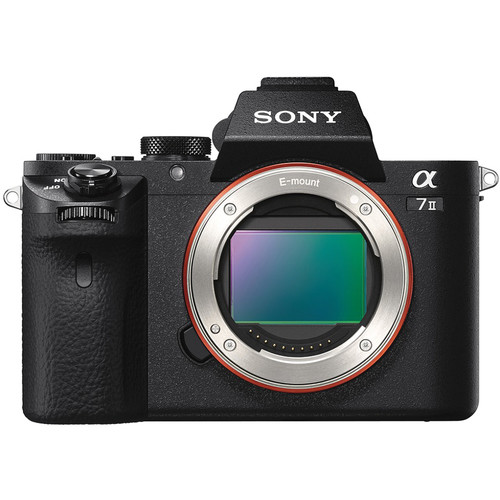
The Sony A7 II offers in-body stabilization - plus compatibility with a wider range of third-party lens manufacturers than other camera brands. Be warned that in some places the newer and better A7 III can be equally as cheap.
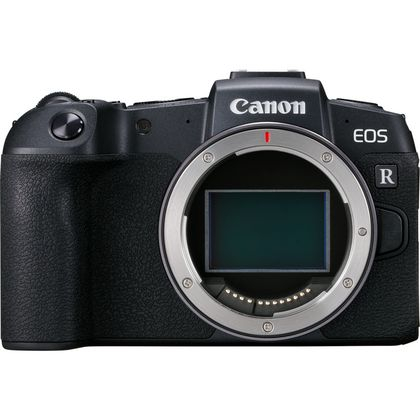
The Canon EOS RP, the second RF full-frame mirrorless, offers an affordable entry to the new system, now the cheapest among Canon full-frame cameras.
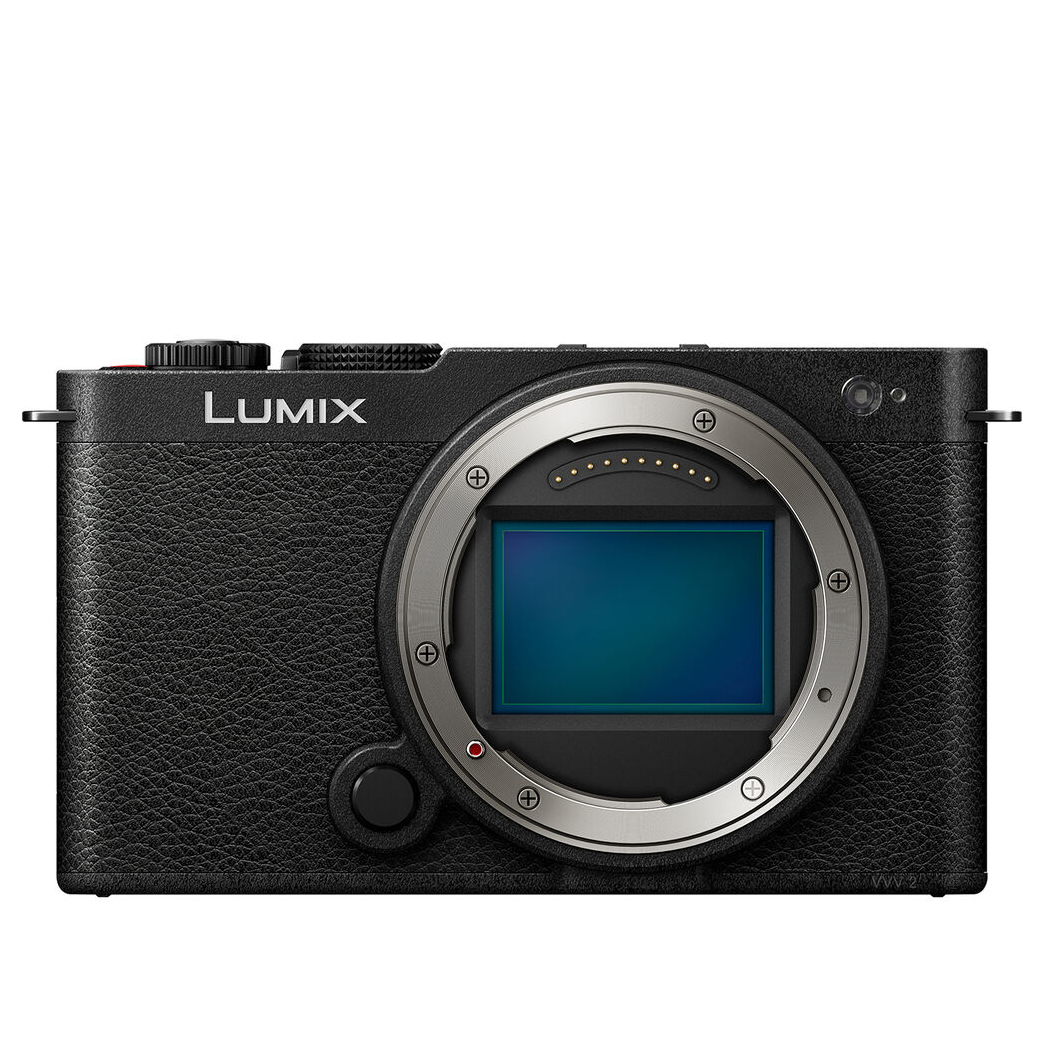
The Lumix S9 is one of the best options for a video camera full-stop, but its affordable price means that great social media ready video is more accessible than ever.
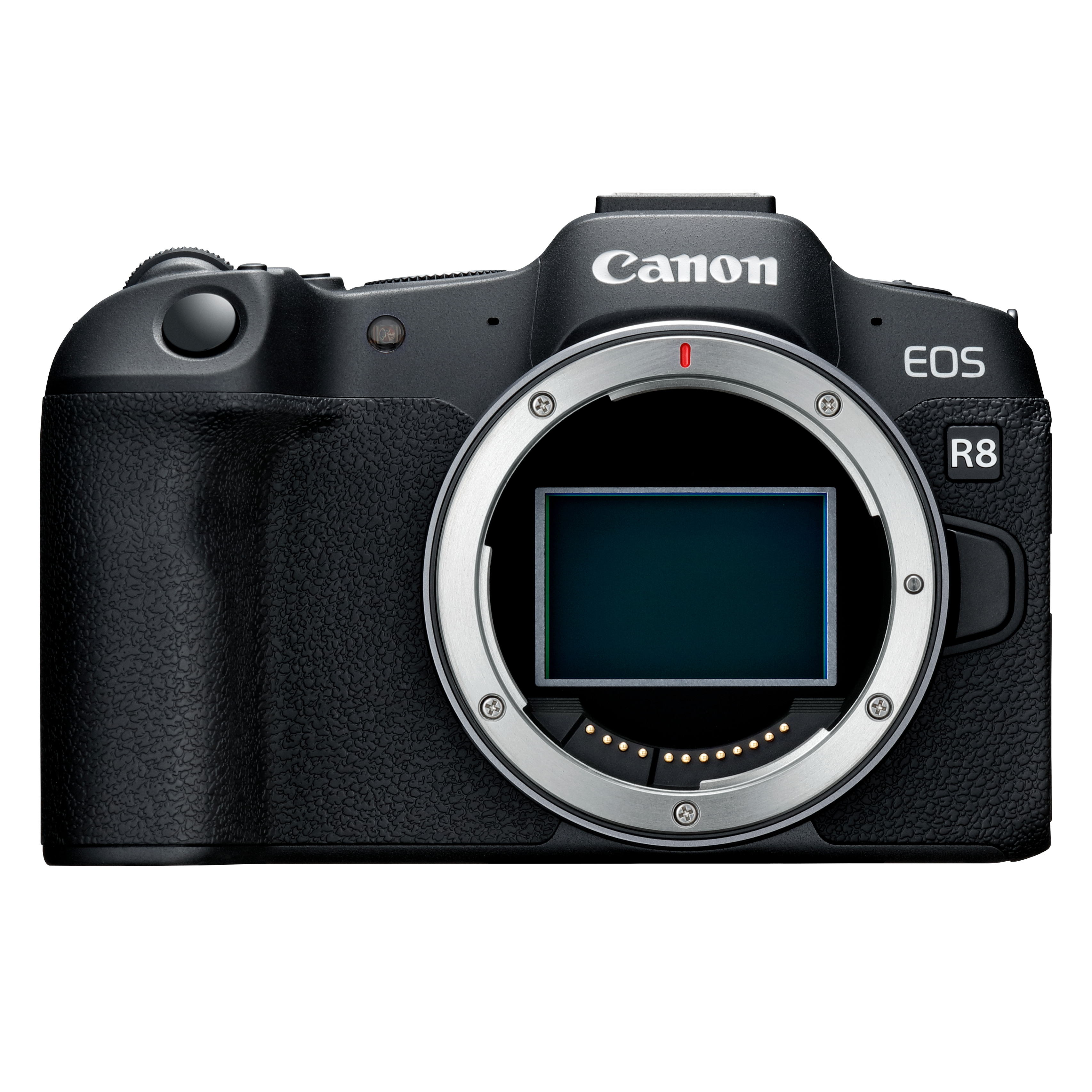
The Canon R8 is one of the most affordable options for incredible photos and videos with modern specs. Canon's affordable lenses are also top-notch.
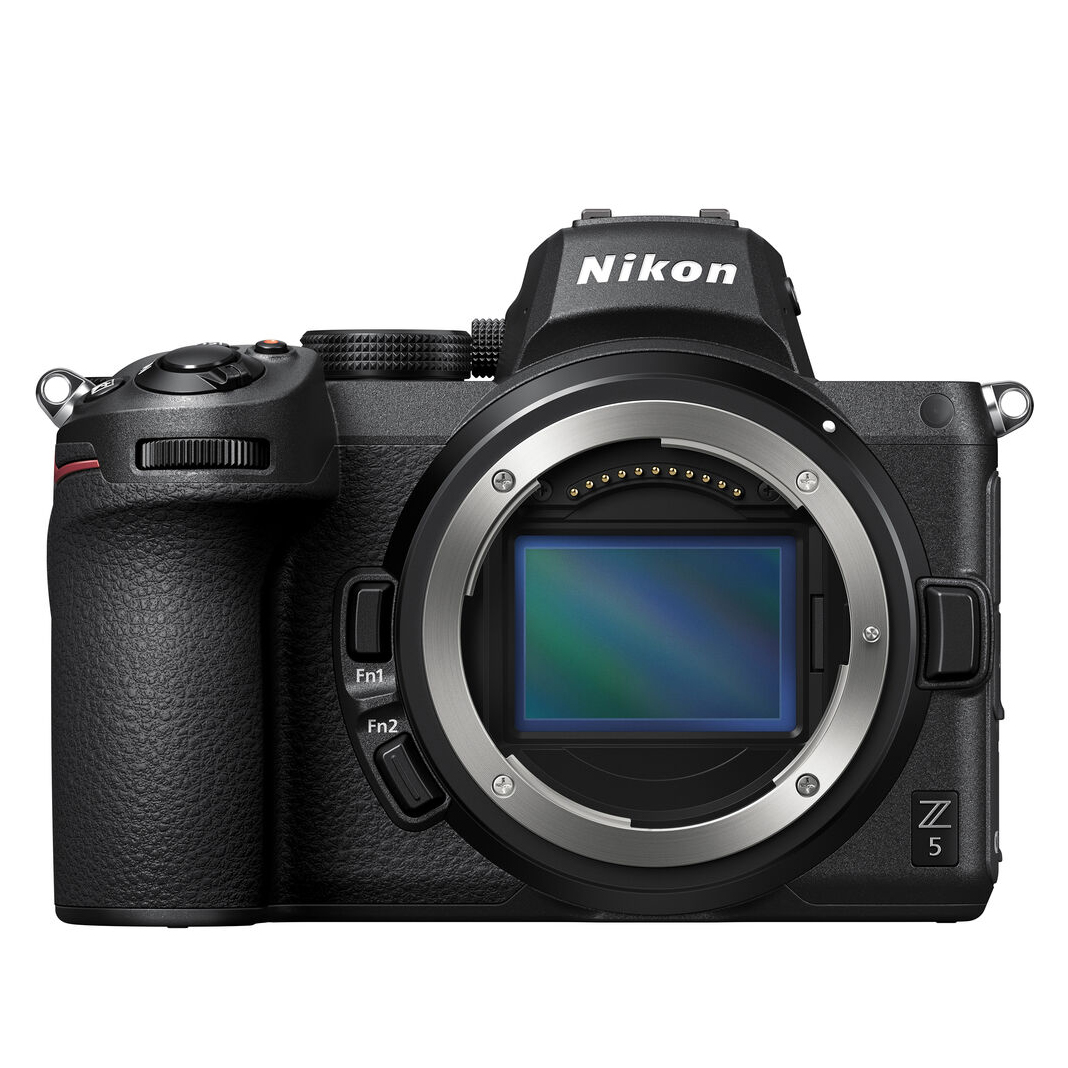
If you are invested in Nikon then the cheapest entry point to full-frame is the Nikon Z5. An excellent camera with a few compromises that you might never even notice.
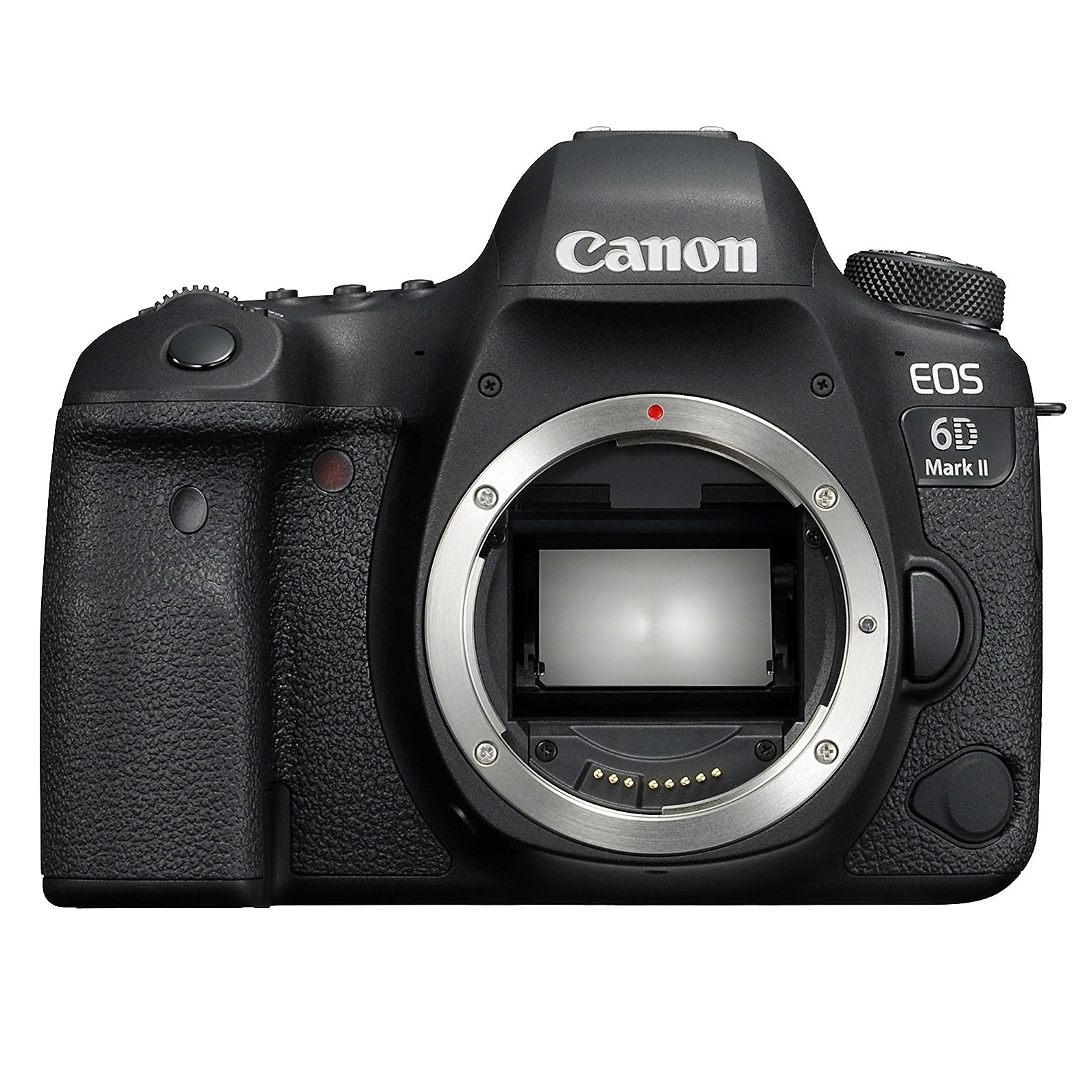
If you aren't ready to let go of DSLRs just yet you're choices are getting slim, but there are still plenty of Canon EOS 6D Mark II's around, which is a testament to how good it is.
The cheapest full frame cameras
Why you can trust Digital Camera World
The best value full-frame camera
1. Sony A7 II
Our expert review:
Specifications
Reasons to buy
Reasons to avoid
The Sony A7 II was the first camera in the Sony Alpha mirrorless range to feature sensor-shift image stabilization, making it a pioneering model in its lineup. As it's been on the market for a few years now, you can find it at a significantly reduced price, providing excellent value for those looking to upgrade from the original Sony A7. This camera is compatible with a wide range of Sony lenses, as well as options from third-party manufacturers like Sigma and Tamron, offering great versatility in lens choice.
It boasts a 117-point phase-detect autofocus system and a 25-point contrast-detect AF system, ensuring sharpness and clarity no matter where your subject is in the frame. Although it doesn't have the highest-resolution sensor on the market, the 24-megapixel sensor is more than sufficient for most needs, allowing you to print images as large as A1 without losing detail.
Do note that in some places, particularly the UK, the newer Sony A7 III is often just as cheap - and is more widely available
Read our full Sony A7 II review for more details
Check out the differences in our Sony A7 II vs A7 III comparison
Best cheap full-frame Canon camera
2. Canon EOS RP
Our expert review:
Specifications
Reasons to buy
Reasons to avoid
The Canon EOS RP was the second camera introduced in Canon's new RF full-frame mirrorless system. It was specifically designed to provide an affordable entry point into this innovative camera family and its all-new lens mount. As time has passed, the prices have dropped further, making the EOS RP the most affordable option among Canon's full-frame cameras.
To ease the transition for those upgrading from a DSLR, the EOS RP body comes with a converter that allows you to use your existing Canon EOS DSLR EF-mount lenses. This is particularly advantageous given that the current RF lenses are quite specialized and expensive, making the converter an essential tool for budget-conscious photographers.
In terms of features, the EOS RP can be considered a mirrorless version of the Canon EOS 6D Mark II, but with notable enhancements such as an electronic viewfinder and the ability to shoot 4K video. Despite its small body, it handles larger lenses reasonably well and doesn’t feel overly unbalanced. While it lacks the robust build of more professional-oriented cameras, it is lightweight, user-friendly, and equipped with modern technology.
Although it’s not the most advanced full-frame camera on the market, the EOS RP offers a compact, easy-to-use body with a vari-angle screen. This combination of features makes it a brilliant buy at its current price, especially for those looking for an entry-level full-frame mirrorless camera that doesn’t compromise on essential functionalities.
Read our full Canon EOS RP review for more details
Best cheap full-frame camera for video
3. Panasonic Lumix S9
Our expert review:
Specifications
Reasons to buy
Reasons to avoid
The Panasonic Lumix S9 is a great value modern full-frame camera. Its aggressive pricing sets it apart in a competitive market that includes notable similar models from the likes of Sony, Canon, and Fujifilm.
Aimed at anyone who wants to make great video fast, the S9’s dedicated button for built-in LUTs will appeal to social media creatives needing to quickly post polished footage. This feature, along with the Lumix Lab app, simplifies the process of getting photos off the camera and online right away.
Other new features like the crop/hybrid zoom function increase the S9’s versatility, making it an excellent option when you have only one lens or limited time to change lenses. The S9 excels with its compact size, however, the advantage of its small size is somewhat diminished when attaching a lens, as even small L-Mount prime lenses can make the camera front-heavy due to its minimal grip.
To keep its compact form, the S9 omits an electronic viewfinder, which may be a drawback for traditional photographers who prefer composing shots this way. The lack of a viewfinder could be a significant factor for many photographers in their decision-making process. But if you can look past a few flaws in the overall design then this is a very compelling full-frame option, that won't break the bank too!
Read our full Panasonic Lumix S9 review for more details
Best all-round cheap full-frame camera
4. Canon EOS R8
Our expert review:
Specifications
Reasons to buy
Reasons to avoid
Consider the EOS R8 as an attractive option if the EOS R6 Mark II's price tag leaves you wanting. The R8 caters to a broad spectrum of photographers, from content creators seeking a do-it-all hybrid camera to enthusiasts wanting to explore the world of full-frame sensors, and even budget-minded students.
While the R8 boasts a compact, budget-friendly design, a few trade-offs are to be considered. Battery life is the main area where it falls short, and some users may find the single SD card slot located underneath the battery door to be a hassle. Additionally, those accustomed to navigating menus with a joystick or thumb wheel might require some adjustment to the R8's interface.
Despite these limitations, the R8 packs some impressive technology. The full-frame sensor unlocks creative potential with features like beautiful background blur (shallow depth of field) and capturing more detail in highlights and shadows (expanded dynamic range). The lightweight build and accessible price make it a compelling choice for photographers of various experience levels.
Read our full Canon EOS R8 review for more details
Best cheap Nikon full-frame camera
5. Nikon Z5
Our expert review:
Specifications
Reasons to buy
Reasons to avoid
The Z5 stands out in Nikon's lineup as its most affordable full-frame mirrorless camera, making it a prime candidate for consideration if you an avid fan of Nikon's wares. Over the past year, it has notably improved its appeal by offering wider availability in both body-only configurations and kits with various lens options, as well as the overall Nikon Z lineup of lenses expanding to give more choices.
The Z5 offers a lot of top features for an affordable full-frame camera, with Nikon's photo skills being legendary. While its 4.5fps burst shooting and cropped 4K video capabilities may leave some users wanting more, the Z5 compensates with excellent handling, boasting a magnesium alloy body and weatherproofing for added durability. Additionally, the inclusion of twin SD UHS-II card slots enhances its practicality for photographers.
However, what truly grabs attention is the recent price reductions, presenting an opportunity to acquire a cutting-edge camera design at remarkably affordable rates.
Read our full Nikon Z5 review for more details
Best cheap full-frame DSLR camera
6. Canon EOS 6D Mark II
Our expert review:
Specifications
Reasons to buy
Reasons to avoid
The Canon EOS 6D Mark II made its debut five years after its predecessor, the original Canon EOS 6D, and with its arrival came a host of substantial updates that have kept it at the forefront of camera technology. Even today, it continues to exude a sense of modernity and relevance.
In contrast to the somewhat sluggish performance of its predecessor, the EOS 6D Mark II offers a vastly different experience. Its resolution sees a notable bump from 20.2MP to 26.2MP, complemented by the integration of Canon’s advanced DIGIC 7 processing engine. Additionally, the inclusion of a touch-sensitive vari-angle display and 5-axis digital stabilization for handheld video recording adds versatility to its capabilities, although it's worth noting that video recording maxes out at 1080p, with no 4K option available.
The autofocus system receives a substantial upgrade as well, boasting 45 cross-type points that enhance focusing accuracy and speed. While the distribution of AF points leans towards the center of the frame, the system's sensitivity down to -3EV ensures reliable performance even in challenging lighting conditions. Moreover, the incorporation of Canon’s acclaimed Dual Pixel CMOS AF technology in both Live View and video shooting further elevates its capabilities.
In practice, the EOS 6D Mark II delivers a satisfying shooting experience, thanks to its blend of features, flexibility, and value. Its combination of cutting-edge technology and user-friendly design cements its status as one of the standout offerings in Canon’s lineup of cameras.
Read our full Canon EOS 6D Mark II review for more details
Also consider
Panasonic Lumix S5 / S5D
The S5's price helped turn Panasonic into a major player in full-frame mirrorless cameras market. It has now been updated with the S5II – but that means the original can be found at some great discount prices. The newer Lumix S5D is essentially the same camera, but only available in some countries.
See our full Panasonic S5 review
Sony A7 III
This is an updated version of the Sony A7 II - and sometimes can be found almost as cheaply (particularly in the UK). So it is well worth keeping an eye out for deals.
See our full Sony A7 III review
How we test cheap full-frame cameras
We test cheap full-frame cameras both in real-world shooting scenarios and in carefully controlled lab conditions. However, when evaluating the cameras we take into consideration the price so that our expectations are realistic for how we expect the camera to perform against far more expensive options.
We conduct practical testing tailored to each camera's intended use, evaluating high-speed cameras with fast-moving subjects and high-resolution cameras with detailed scenes. Additionally, we assess cameras in typical shooting scenarios over extended periods, ensuring comprehensive feedback.
Our reviewers provide insights on user experience, ergonomics, encountered issues, and subjective assessments of performance, distinct from laboratory findings.
Laboratory tests cover resolution, dynamic range, and signal-to-noise ratio. Resolution is gauged using ISO resolution charts, while dynamic range and noise analysis are conducted with DxO Analyzer equipment across the camera's ISO range.
Integrating real-world experiences and lab results guides our selection process for inclusion in our buying guides.
Find out more about how we test and review at Digital Camera World.
Compare prices
The best camera deals, reviews, product advice, and unmissable photography news, direct to your inbox!

Gareth is a photographer based in London, working as a freelance photographer and videographer for the past several years, having the privilege to shoot for some household names. With work focusing on fashion, portrait and lifestyle content creation, he has developed a range of skills covering everything from editorial shoots to social media videos. Outside of work, he has a personal passion for travel and nature photography, with a devotion to sustainability and environmental causes.
- James ArtaiusEditor in Chief
